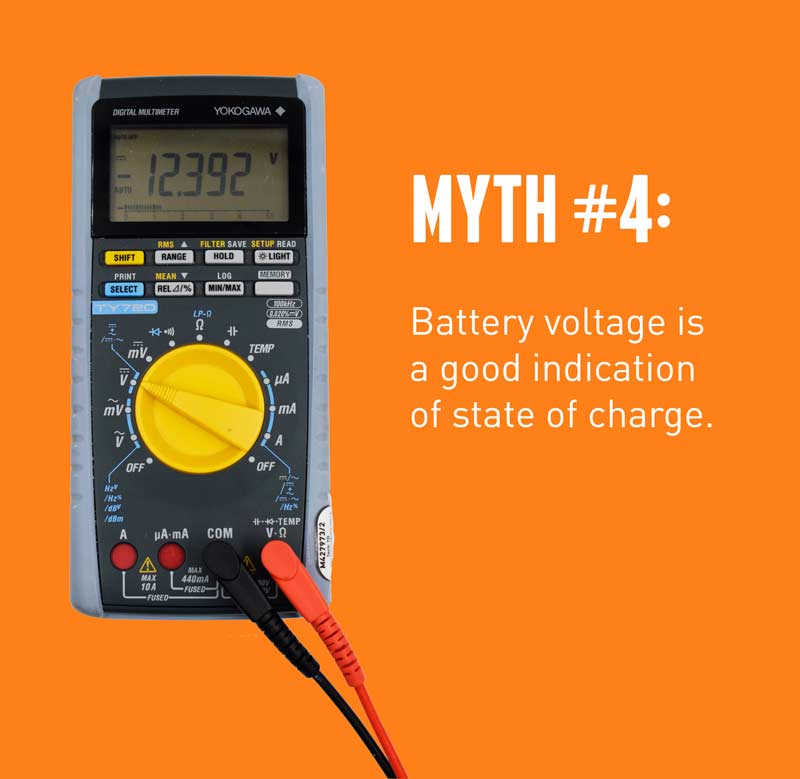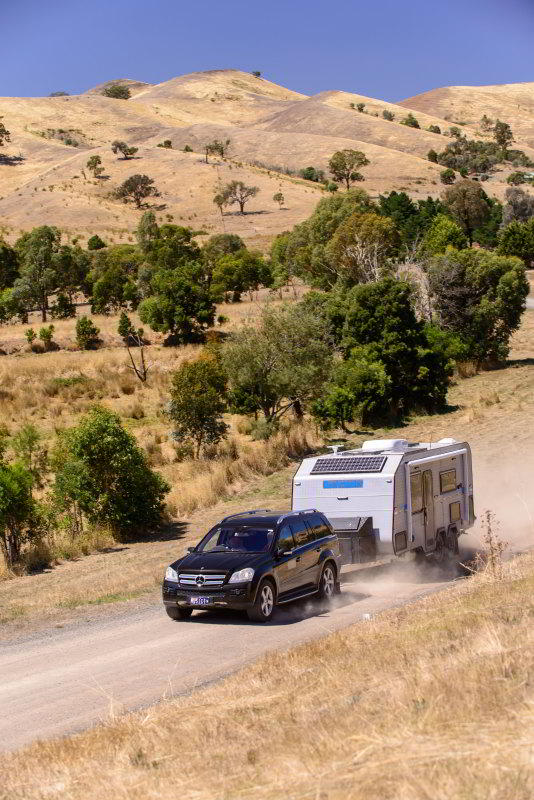DEBUNKING DEEP CYCLE BATTERY MYTHS
Caravan batteries – they help keep our drinks cold and our food fresh, but do we really know what goes on inside that little black box? Battery power is the result of some pretty complex chemistry that, luckily, we RVers don’t really need to understand. However, for that reason, there is a lot of misinformation floating around about deep cycle batteries, and sorting the fact from the fiction will help you get a better handle on your power supply.
MYTH #1: Any battery charger will do.
FACT: While it’s true that all batteries need to be charged, it’s untrue that all battery chargers are created equal and, therefore, up for any job. In the good old days, yes, just about any charger would do but not anymore, now that battery, and battery charger, technology has changed.
Some battery types (i.e. lithium) require specific chargers to achieve maximum functionality, and some batteries require constant charging.
Things also get complicated if batteries are being charged by more than one source (i.e. mains charger, Anderson plug or solar panels). If you’re using solar, you also need a regulator and there are now integrated battery and power management systems, such as BMPRO’s BatteryPlus, which can charge and manage your entire setup. BatteryPlus is an ‘all-in-one’ management system, combining an inbuilt battery charger, distribution board, fuses, DC outputs, inbuilt PMS solar regulator (or solar regulator input on 35HA and 35PM models), CAN bus connections, auxiliary DC input, load current unit, and low voltage disconnect.
MYTH #2: Starter and deep cycle batteries cannot be used interchangeably.
FACT: Best practice is that neither battery be used for the alternate function but, in an emergency, it’s worth a shot. Starter batteries can be used for an extended deep cycle function but, in order to prolong the battery’s life, they need to be recharged as quickly as possible. Deep cycle batteries used for starting cars are likely to ‘die’ very quickly.
MYTH #3: Deep cycle batteries can be discharged until the lights dim.
FACT: Yes and no. Deep cycle batteries are designed for extended periods of discharge, but the battery life will be shortened if they are frequently discharged below 50 per cent. It’s a mistake to think a 110Ah battery will give a 10A current for 11 hours. It won’t!
MYTH #4: Battery voltage is a good indication of state of charge.
FACT: Not always. When a battery is flat, it can be. However, a good battery that has been used extensively may show a slightly lower than usual voltage but still be fully chargeable. On the other hand, a dud battery may show a high voltage after being freshly charged but that won’t last for long. However, a good power monitor will be able to determine a battery’s state of health and state of charge for you, which will give you much clearer information than just measuring amps and volts. BMPRO’s range of battery monitors, including Drifter, Trek and the digital (smartphone) BatteryCheck do just this. The monitors count the energy put into the battery and the energy taken out and maps it against the volts and amps available, giving you a complete picture of your battery’s capability, through ‘State of Charge’ and ‘State of Health’ indicators.
MYTH #5: Lithium batteries aren’t worth the price.
FACT: This depends very much on your intended use. If, for example, you’re planning to travel extensively in the outback with no inverter or 240V supply, then lithium batteries could be a cost effective option. In addition, their lighter weight makes them very suitable for smaller RVs, or those trying to keep their weight down while maximising the Ah to kilo ratio. Their ability to discharge to 10 per cent remaining capacity also makes them very suitable.
MYTH: #6 Lithium batteries aren’t safe.
FACT: In recent years, there has been some negative publicity about lithium batteries used in Boeing 787 aircraft, however, those batteries (a lithium cobalt oxide) use a different chemistry to the lithium ion batteries used in RVs. All batteries can be dangerous if not handled properly but, if used correctly, lithium batteries actually have more inbuilt safety features than lead acid batteries.
Like this Post? Share it!





